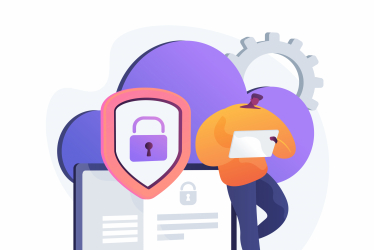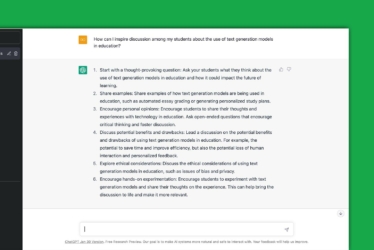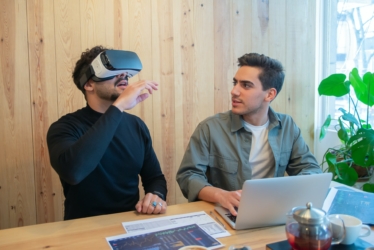Insights, Projects
Incorporating Playful Learning Into an Anthropology Course
In 2021, the Learning Guild at the Centre for Innovation delved into the topic of playful learning. Churning the literature and interviewing several teachers who apply playful learning, they published a series of stories on the topic:
- Defining Playful Learning
- Design Principles for Playful Learning
- Best Practices of Playful Learning at Leiden University
- Best practices of playful learning outside Leiden University
- Escape Room Examples in Education
- Time to Put our Research to the Test: Were we Able to Create an Escape Room?
- LXDcon 2021: Our Playful Approach to Space and Learning
- Playful Learning Inspiration from Board Games
- A Year of Playful Learning
To put all their knowledge into practice, the goal was to create a pilot project that would aid teachers in incorporating playful learning into their teaching. Daniek Bosch and Emma Wiersma connected with Anne Veens — a teacher searching for innovative ideas to redesign a third-year Anthropology bachelor course to make the course load more manageable and aid students in putting their knowledge into practice. In the course, Personal and Professional Impact, students learn how to apply their academic skills as a professional. Originally, the main assignment entailed devising a possible solution for a fictional client. However, the students reportedly experienced the course as extremely challenging, instigating the teachers to apply changes to the programme.
The teachers (Anne Veens, Willem van Wijk, and Igor Boog) sought to incorporate playful learning into their course to encourage and facilitate students to think outside the box and learn from their failures. They recognised playful learning as valuable for students and that designing a playful experience is an effective and enjoyable way to learn something new. Based on this insight and through several brainstorming sessions, the idea arose to let students design an online escape room for each other instead of the teachers designing it for the students, which Daniek and Emma assisted in setting up. The goal of the escape room was to let students reflect on their qualities and skills as an anthropologist and refer back to the learning goals of all their bachelor courses, which they could then utilise when applying for jobs after graduation.
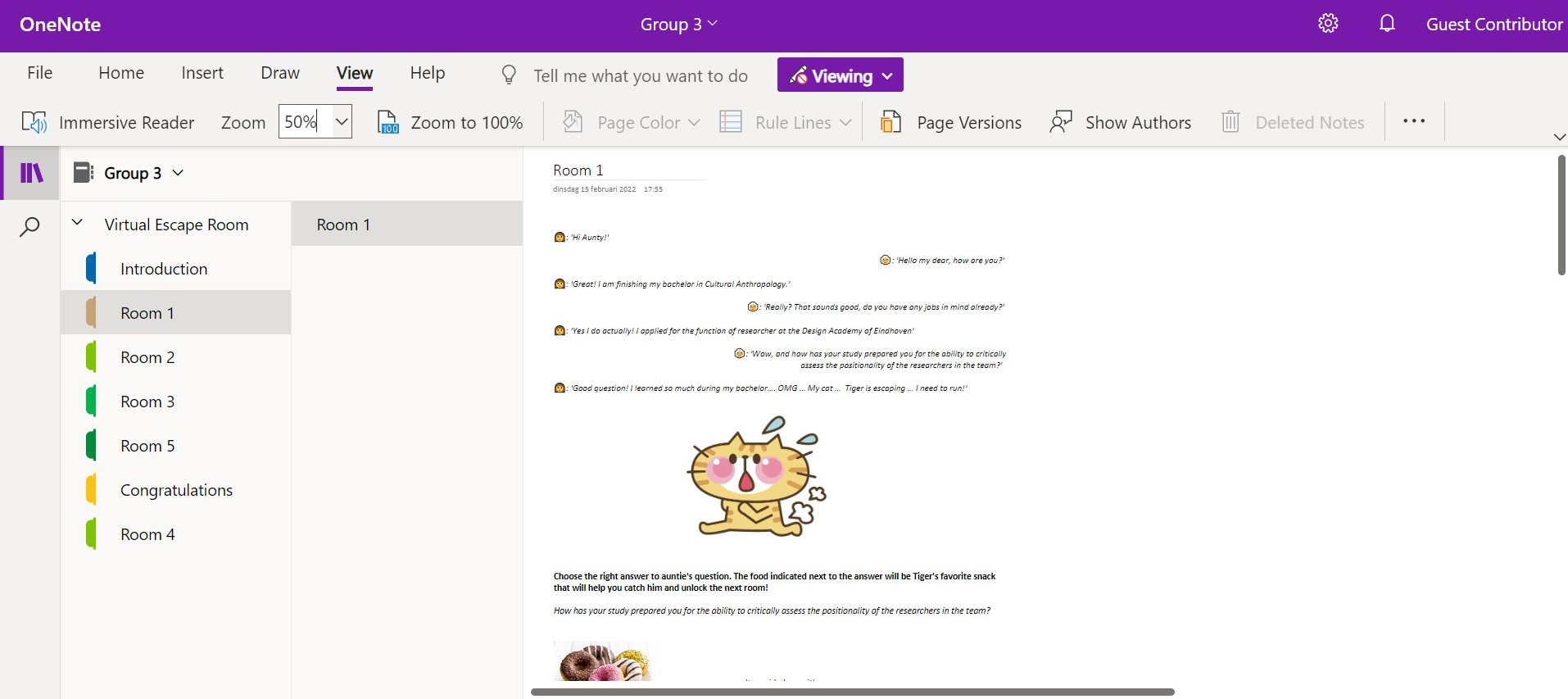 One of the escape rooms created by the students in OneNote (Room 1)
One of the escape rooms created by the students in OneNote (Room 1)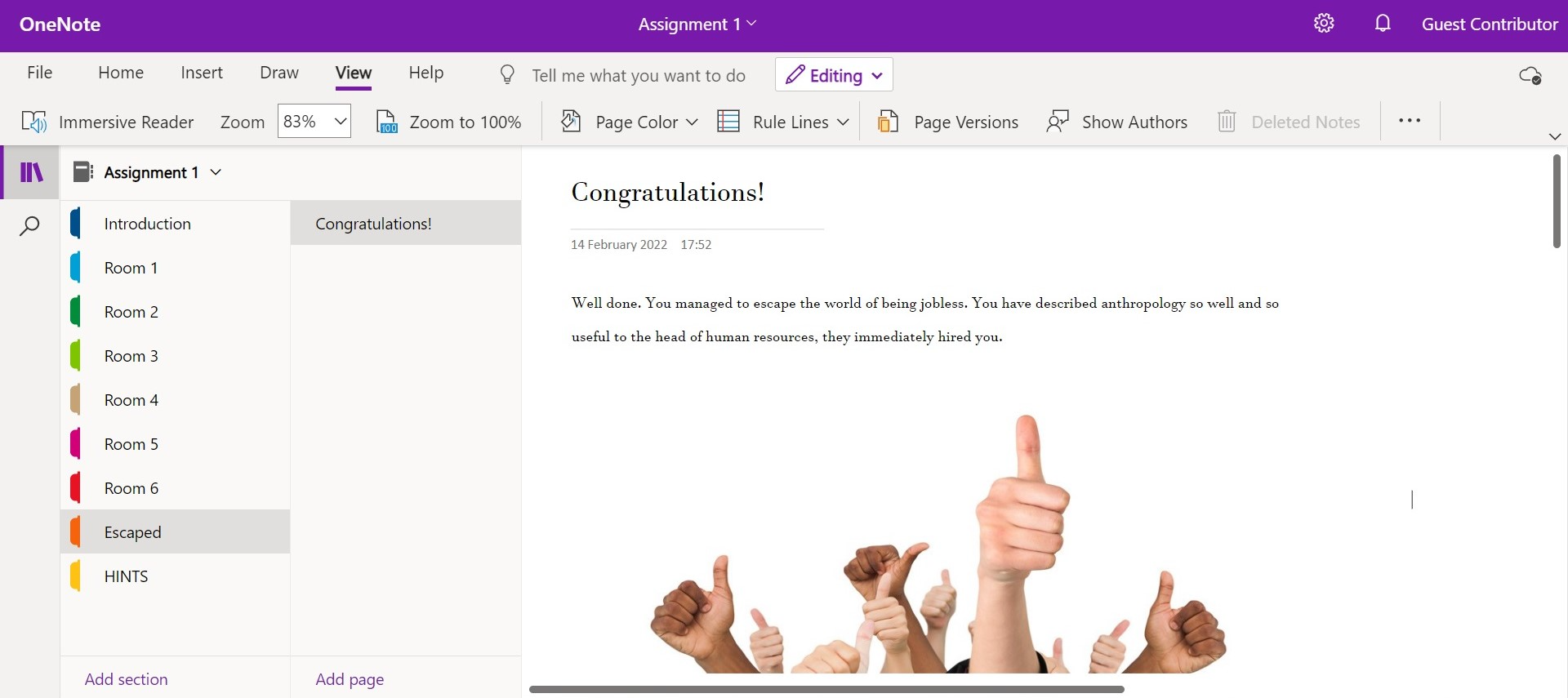 One of the escape rooms created by the students in OneNote (Escaped)
One of the escape rooms created by the students in OneNote (Escaped)Through the project, the teachers became skilled in creating a storyline for an escape room and equipped to explain to their students how to create their own online escape room in OneNote. Based on the storyline of the teachers, the students had to create multiple assignments using the learning goals of their bachelor courses. The students learned valuable skills such as persistence, collaboration, experimentation, and failure. The process stimulated intrinsic motivation, being in a flow state (also known as “being in the zone”), and a mindset in which students took more risks, increasing their self-esteem and making them more resilient.
The teachers recognised that the students learned a lot from the assignment. Students regularly referred back to the learning goals from the bachelor courses and better understood their qualities and skills. In light of these positive experiences, the teachers incorporated the escape room assignment into the curriculum. With their publications and pilot project, Daniek and Emma hope to connect with other teachers and aid them in putting new ideas into practice.


